- Home
- Helen Forrester
The Moneylenders of Shahpur Page 2
The Moneylenders of Shahpur Read online
Page 2
Savitri, comfortable in the shade of a tree taller than the bungalow, shouted that she had not to be back at work for an hour.
Anasuyabehn quickly bathed, washed her hair and changed her petticoat, blouse and sari. Then, taking a towel and rubbing her hair as she went, she climbed the stairs to the roof, promising herself that she would go down to help Aunt in the kitchen after a few minutes’ gossip with her friend.
Savitri lived such a full and interesting life, she thought enviously. She actually earned her living as a chemist. She herself had never been able to persuade her father to allow her to work.
‘Have you had lunch?’ she asked Savitri. Her voice was solicitous and deferential. It rejuvenated the other girl’s self-esteem, which always sank when she saw Anasuyabehn.
She turned her thin, heavily bespectacled face towards her friend and said she had eaten. She thought mournfully that she had a university degree and competed successfully in the world’s hardest labour market; but when she and Anasuyabehn walked together in the evening it was at Anasuyabehn that young men cast longing glances. Savitri’s needle-sharp wit might enliven a party, but it was to Anasuyabehn’s shy acquiescing answers that men really listened – negative, obedient Anasuyabehn – so obedient, thought Savitri grimly, that it was just as well that she had few opportunities to meet young men alone. Savitri herself had haughtily repelled her father’s offers to find her a husband and yet she craved for a man of her own.
She sighed, and watched without interest as a tonga loaded with luggage rumbled down the lane beneath her.
A thin, sharp shriek of ‘Niece!’ up the stairs broke into their conversation and reminded them suddenly that a caustic-tongued old lady awaited Anasuyabehn’s ministrations.
The girls grimaced at each other.
‘I wish I were married,’ they said in chorus and then dissolved into laughter. They were still laughing and joking when two gentlemen walked down the lane.
CHAPTER TWO
John Bennett had found the peace he sought in a high-ceilinged, stone-floored room in the house of a retired teacher, a few doors away from Dr Mehta’s home. The room was light and airy and austerely furnished with a wooden couch for sitting and sleeping, a big desk and a chair, and a table from which to eat; there was also a large cupboard for his books and other possessions. On a veranda behind the room, Ranjit camped contentedly among the cooking pots; and on another veranda, to the front of the room, were comfortable basket chairs.
Since his arrival, John had immersed himself in his new history and was almost happy. Though he could not trace any of his former English friends, he had met some Indian ones again and found that none of them held any rancour against him for being English. He had visited his old friend, Dr Ferozeshah, at his surgery, where he was introduced to his head nurse, an English lady of quiet, professional demeanour, Miss Armstrong; Ferozeshah told him that she had previously served in a medical mission north of Shahpur.
As time went by, he was able to discard one of his walking sticks, though his legs still caused him pain occasionally.
While Savitri and Anasuyabehn chatted on the roof of Dean Mehta’s bungalow, John took the record of Beethoven’s Fifth Symphony off his record player and dusted it carefully.
He opened the cupboard and laid the record on the top shelf, put the record player on a lower shelf, and closed and locked the door.
‘Ranjit,’ he called, as he began to unbutton his shirt, preparatory to changing.
‘Ji?’ responded his servant. He put down the tray of wheat he had been cleaning and creaked slowly to his feet. Though elderly, he was a powerful-looking peasant. He had come to Shahpur from United Provinces forty years before, when only a boy. Except when the Bennett family was on leave in England, he had never left them. He had made a close study of Shahpur and was well known for his profound knowledge of exactly where to place a bribe to hurry officialdom or obtain a favour.
‘Put those papers into my briefcase, while I change my shirt. I’ve an appointment with Dean Mehta.’
Ranjit wiped his seamed face with the dish towel draped over his shoulder and, with surprisingly deft movements, he packed the briefcase. He turned a toothless smile upon John. ‘Will you be in for lunch?’ he asked.
John buckled his belt, and, balancing himself by holding on to various pieces of furniture, he went to the bathroom in search of a comb.
‘Yes,’ he decided, as he combed vigorously at his hair, which never would lie down properly. ‘I won’t go to look at the temple until tomorrow.’
When he was ready to leave, Ranjit preceded him through the shady compound, in order to open the gate for him.
‘Sahib, there’s a tonga here.’
John presumed that the occupants of the carriage had come to visit his landlord. He viewed with interest, however, the tall, slim man who sprang down into the dusty lane. An elderly woman and a thin young girl still in the carriage peeped at him from behind their veiling saris.
‘Excuse me,’ said the man in good English. ‘Can you tell me where to find Dr Mehta, the Dean?’
‘Certainly. His house is the eighth one from here, down that way,’ replied John, indicating the way the tonga had come.
‘I’m really looking for his office.’
John looked thoughtfully at the man. Definitely not a student, he decided.
‘I’m going to his office now,’ he said. ‘Would you like to come with me?’
The young man glanced up at the two ladies, who were whispering to each other, and seemed undecided. The tongawallah, on his high perch, started to fidget and began to mutter about people who made him wait forever and lose business. It was apparent that, at any moment, he would demand an increase in the agreed fare.
‘I don’t know what arrangements have been made for us. Mother is tired after our long journey.’
John’s perplexity must have shown on his face, because he added, ‘I’m Tilak from Bombay. I’m to teach Zoology here. In which department do you teach?’
‘I’m not a member of the University staff,’ John replied. ‘But Dr Mehta mentioned that you were coming. I hope you’ll like it here.’ He extended his hand to the newcomer.
Though Tilak’s fingers looked slim and delicate, his grip on John’s hand was firm. ‘Thanks,’ he said.
‘Perhaps the ladies would like to rest in my room,’ John suggested. ‘My servant would look after them, while we go to see the Dean.’
The offer was accepted with alacrity. With Ranjit’s help and with much puffing and blowing, Mrs Tilak and her daughter were installed in John’s room. John left to Ranjit the task of offering refreshments to the ladies. He had no idea of their caste or orthodoxy. If they were very orthodox, they would refuse all refreshment, in spite of the fact that Ranjit was himself a Brahmin.
Dr Tilak and he walked down the line of flat-roofed houses and bungalows before turning into the path which led to the Arts and Science Building. Tilak looked about him in a brisk, almost military manner which proclaimed his Maratha forebears, in marked contrast to the stolid, slower movements of Gujeratis. He seemed excitable and full of life, and remarked enthusiastically upon the green lawns and little flowerbeds which had been conjured up out of near desert.
Tilak had the beauty of face and form, thought John, which had made Indians famous for their looks, though he was gaunt and very dark-skinned. Though he did not know who John was, he was respectful to him, and he soon drew from him some details of his writings, in particular, about his new book on the history of the Marwari Gate temple and the surrounding district.
But Tilak’s expression lost some of its exuberance, as they chatted. Finally, he said, ‘I wonder what these Jains will think of my subject?’
‘Why? I expect there is a demand for Zoology courses here. Otherwise, it would not have occurred to the University to appoint you.’
‘There’s a demand – probably from Hindus. However, it may not have occurred to anyone that I’ll require small mammals to dissect f
or the benefit of my students – and fish to dissect for my own research.’ He turned to John, his face very earnest, ‘One can never be sure with Jains.’
John smiled at the ominous tone in which he pronounced his last sentence. His eyes twinkled, as he replied, ‘The Vice-Chancellor is a graduate of Harvard – I’m sure he’ll understand the requirements of modern research. We have some old diehards here. A few staff fought against the establishment of a Science Faculty. Dean Mehta is, himself, quite orthodox in his personal life – but I’ve never noticed his trying to impose his views on anyone else.’
Tilak relaxed a little and was about to make some further remark, when his attention was caught by a flutter of pink on the roof of the Dean’s bungalow, which they were approaching.
John, also, had noticed Anasuyabehn on the roof, her pink sari almost obscured by her long, black hair which she was drying in the sunlight. She was generally a very retiring girl and, presumably, imagined that she could not be seen from below or she would undoubtedly have dried her hair indoors; her Western education had failed to rob her of her modesty or dignity. Now, she stood, in all innocence, shaking out her wonderful tresses, and laughing and chattering with her friend, Savitri, who was seated on the low parapet which guarded the edge of the roof.
John thought what a contrast the two women made. Anasuyabehn had an inborn winsomeness, and, as she raised her arms to rub her hair, her fine figure was readily apparent; yet her laughing face and cheerful voice had all the ingenuousness of the carefully protected woman. She was no beauty; but he knew that when she felt at ease with people, she could be quite charming.
Savitri – well, Savitri was Savitri. Thin as a camel after a desert journey, hair cut short and permanently waved last time she had been in Bombay, large, horn-rimmed spectacles; an assertive woman, whose violent efforts to be modern sometimes had results which left her acquaintances gasping. Yet she and Anasuyabehn were old friends, products of the same school and the same college – but different parents, thought John. Though Savitri’s parents were Hindus, their home was almost completely European, while in Dean Mehta’s house, despite his study of English, many of the old Jain ways still lingered.
As he and Tilak came level with the bungalow, Anasuyabehn approached the parapet, and, parting her waterfall of hair with her hands, she looked out across the compound straight at Tilak.
Tilak stopped in his tracks, fascinated by the gentle, fair face, made stronger looking by sweeping black brows, and by the marvellous hair rippling down past the girl’s knees. In that unguarded moment she did, indeed, look very different from her usual modest self. Behind her, the leaves of an overhanging tree rustled and cast a dappled shade over her, guarding her from the searching rays of the sun.
She stood for a moment, as if captivated, and then, suddenly realizing her dishevelled state and the impropriety of staring at a man, she whipped away across the roof to the staircase.
Tilak continued to stare at the spot where she had stood, as if the shabby, white parapet had mesmerized him.
‘Heavens,’ he breathed in English, and then blinked and turned his face away, as he realized that he was being insolently scrutinized by Savitri, who was still seated on the low wall.
Embarrassed by this merciless examination, he turned to John and said in his stilted English, ‘What were you saying about the Vice-Chancellor and the Dean?’
John was also acquainted with Savitri. He gravely lifted his stick in salute to her. She smiled acknowledgment and he turned his attention again to Tilak.
Though Tilak had reopened the conversation, it was obvious that he was not really listening to John’s reply. His face was rapt as they walked along, the eyelids narrowed, the lips parted, and John felt uncomfortably that this lean, attractive newcomer was probably far too emotional to slip quietly into the life of the University. An intense man, thought John, with a difficult subject to teach, in a district where the life of every crawling bug is sacred.
In the middle of a story being told to him by John of how local villagers refused to spray a locust invasion, because of their beliefs, Tilak asked suddenly, ‘Whose was the bungalow where the two girls were up on the roof?’
As they climbed the steps of the Arts and Science Building, he looked up at John, impatient for his answer.
A quizzical gleam in his eye, John glanced back at Tilak. ‘It was Dean Mehta’s bungalow. Why?’
Tilak flushed at the query and did not reply at once. Then, with a burst of inspiration, he said, ‘It is helpful to know exactly where various members of the University staff live, and so on.’
In the hall, he saw the name of the Dean on a door facing him, and he promptly changed the subject, a slight grimness in his voice. ‘Well, here I go. Now we shall see what effect Zoology creates in a Jain world!’
But Dr Tilak was received with quiet courtesy by Dean Mehta and his fears were allayed. The Head Peon was instructed to help him remove his mother and sister and luggage from John’s room and he left to do this, while John arranged with the Dean to visit the Marwari Gate temple with him the following morning.
CHAPTER THREE
The Marwari Gate temple had been built by an emperor as a sacrifice for the sins of his teeth. John had visited it on a number of occasions, but this time he wanted to arrange to see some of its sacred manuscripts.
The next morning, with clean handkerchiefs held politely over their noses, he and Dr Mehta followed their amiable guide, a monk, through the courtyard and into the halls and sanctuary. He marvelled again at the lacelike carving of canopies, roofs and figures of Tirthankaras, all in white marble.
It was explained to him that some of the manuscripts he wished to see were kept in the Treasure House and no stranger could be admitted to that. He was allowed, however, to examine the outside of the Treasure House. It was covered with finely engraved silver. The engravings told the story of the fourteen dreams of Trisala, the mother of Mahavira who was the founder of Jainism. John asked if he might make sketches of these.
The monk was reluctant to agree to this, and called several others to consult them. John remembered again that a limp is considered punishment for past sins, and, from the conversation, he thought he would be turned down because of this.
They finally agreed, however, and John arranged to visit them again in a few days’ time.
Dean Mehta wished to remain at the temple with his religious teacher, so John wandered off by himself.
A few minutes’ walk brought him to the flower bazaar and to the big, frowsy cinemas; the latter were tawdry with electric lights and hand-painted posters showing languid, suffering film heroines.
Near one of the cinemas, he stopped to buy some hot sweetmeats from a man clad only in a loincloth, who had a tiny stall tucked into the angle of a wall.
While he slowly ate his sticky sweets out of the palm leaf in which they had been wrapped, he watched an artist in the cinema entrance painting a poster to advertise the next film. Crowds of people pushed impatiently around him. A beggar woman, clutching a naked, swollen-bellied child, squatted at his feet and whined hopefully. He put a coin into the child’s hand and the woman blessed him, while the starving child stared unseeingly over its mother’s shoulder, giving no sign of life, except to clutch the coin firmly in its mouselike hand.
Although such sights were familiar to him from childhood, a sudden wave of pity swept over him as the woman crept away. With an irritable gesture, he threw away the dripping palm leaf, and made to move out into the crowd.
‘Bennett Sahib!’ exclaimed a cheerful, feminine and very English voice. ‘How could you?’
Startled, he looked round.
Diana Armstrong, Dr Ferozeshah’s head nurse, was standing half behind him. Down her rumpled khaki skirt was a spreading splash of sugar syrup, where the palm leaf had struck her. Her freckled face, brick-red with heat, was crinkled up with laughter. Her red hair was plastered down against her head by perspiration and her khaki shirt was equally soaked and clung to
her slim figure.
John’s first thought was that he had never seen a more bedraggled-looking Englishwoman. Then he hastily collected his wits. She was, after all, his doctor’s head nurse.
‘Miss Armstrong!’ he exclaimed. ‘I am so sorry.’
He looked around him helplessly.
‘Can I get you a tonga in which to return home? Or perhaps the restaurant across the road would find us something to wipe it with.’
‘The restaurant, I think,’ replied Miss Armstrong. Her voice had suddenly lost its laughter and was rather quavery. ‘I think I’d be grateful for a cup of tea as well.’
John looked at her sharply. The flush was ebbing from her face and he saw the blue smudges of fatigue under the clear green eyes. Poor woman, he thought. Why on earth does she work as she does, for an Indian doctor who probably pays her in annas?
He put his free hand under one of her elbows and, marshalling his stick, he guided her firmly across the street to the restaurant and into the gloom of a family cubicle at the back of it. He took her little black nurse’s bag from her and sat down. He knew her quite well as Dr Ferozeshah’s efficient shadow, but had never wished to know anything more of her, except to wonder idly how she came to work for Ferozeshah; and he was now quite surprised at his own temerity. She was, however, English like himself and obviously not feeling too well. He would not admit to himself that he wanted to speak English to somebody English.
‘Tea,’ he told the white-shirted, barefoot waiter, who was goggling at the rare sight of an English couple in his humble café. ‘English tea with sugar and milk separate – boiling water for the tea. And a clean cloth to wipe the Memsahib’s dress.’ He pointed to the sugar stain.
‘Would you like something to eat?’ he asked. ‘They make nice kabobs here.’
She smiled, showing uneven, very white teeth. ‘No, thank you,’ she said. ‘Just tea.’ She leaned back and closed her eyes for a moment, looking, in her exhaustion, soft and vulnerable.

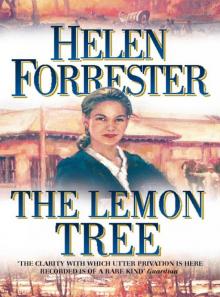 The Lemon Tree
The Lemon Tree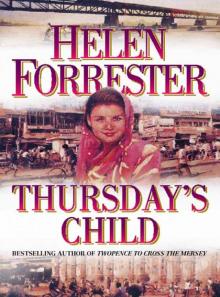 Thursday's Child
Thursday's Child Yes, Mama
Yes, Mama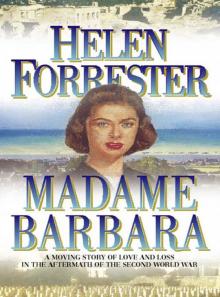 Madame Barbara
Madame Barbara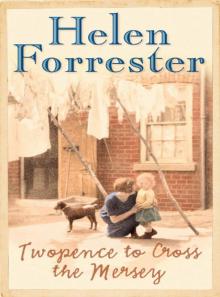 Twopence to Cross the Mersey
Twopence to Cross the Mersey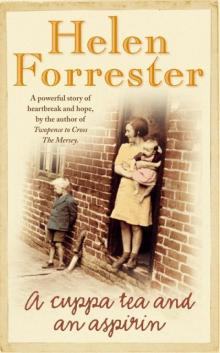 A Cuppa Tea and an Aspirin
A Cuppa Tea and an Aspirin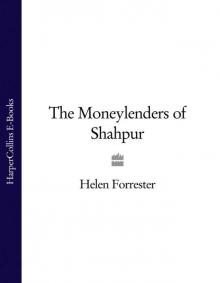 The Moneylenders of Shahpur
The Moneylenders of Shahpur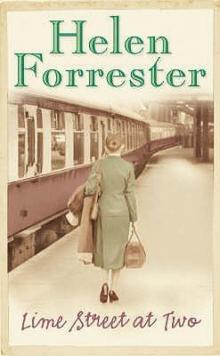 Lime Street at Two
Lime Street at Two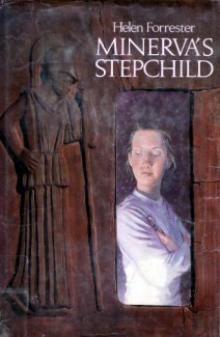 Minerva's Stepchild
Minerva's Stepchild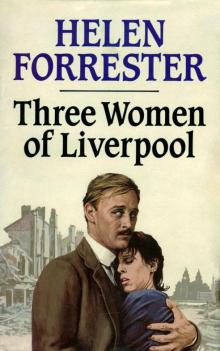 Three Women of Liverpool
Three Women of Liverpool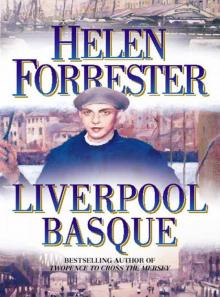 The Liverpool Basque
The Liverpool Basque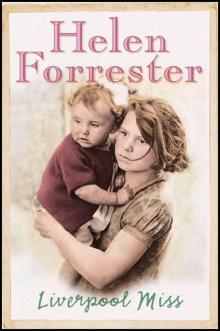 Liverpool Miss
Liverpool Miss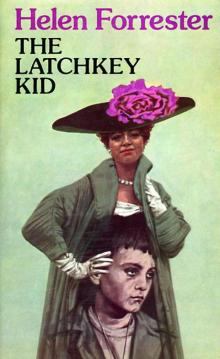 The Latchkey Kid
The Latchkey Kid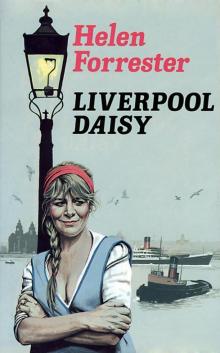 Liverpool Daisy
Liverpool Daisy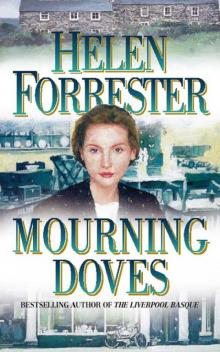 Mourning Doves
Mourning Doves